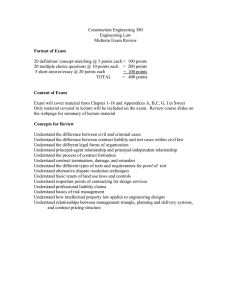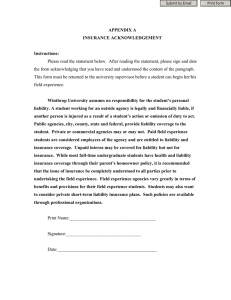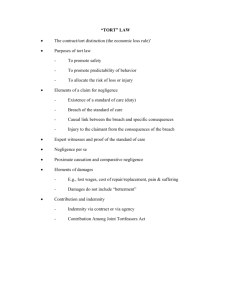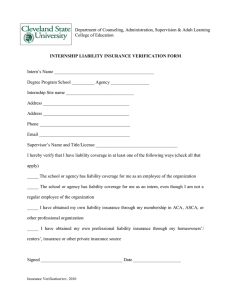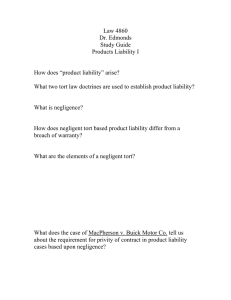Law 4860 Dr. Edmonds Study Guide, Product Liability, Part II
advertisement
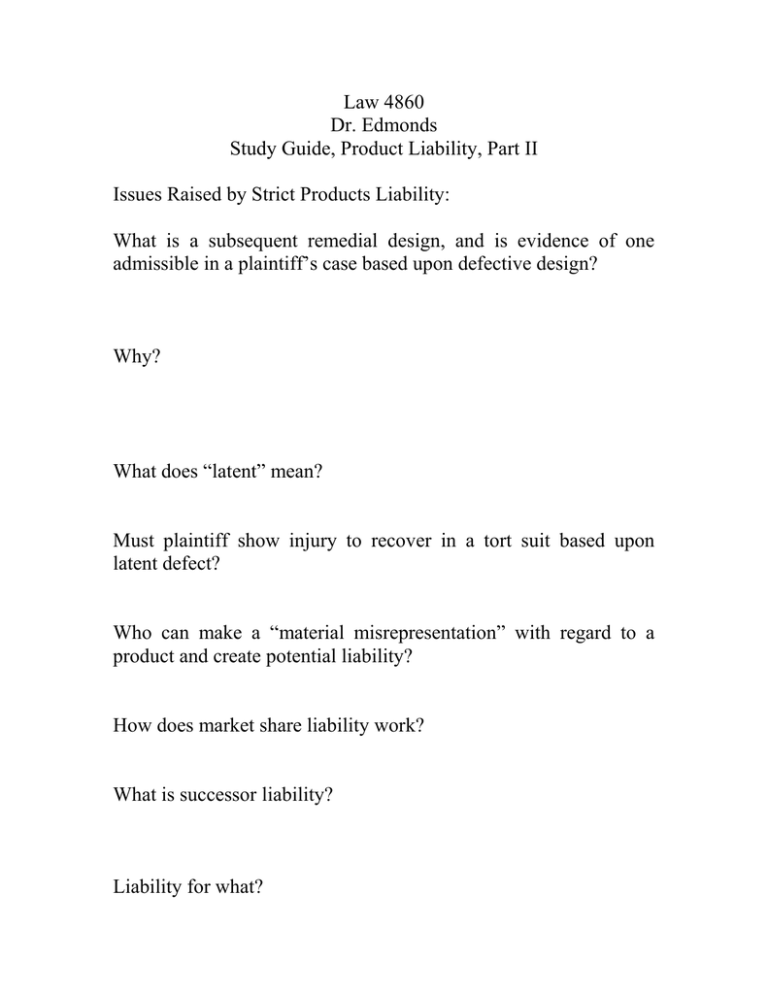
Law 4860 Dr. Edmonds Study Guide, Product Liability, Part II Issues Raised by Strict Products Liability: What is a subsequent remedial design, and is evidence of one admissible in a plaintiff’s case based upon defective design? Why? What does “latent” mean? Must plaintiff show injury to recover in a tort suit based upon latent defect? Who can make a “material misrepresentation” with regard to a product and create potential liability? How does market share liability work? What is successor liability? Liability for what? Study Guide, Products Liability II, page 2 How does successor liability arise (4 ways)? May a plaintiff sue for breach of warranty, strict liability in tort, and negligent tort all in the same case? Are seller imposed limitations on tort liability and consequential damages ever upheld by the courts and if so, when? Defenses to Products Liability Suits: Voluntary Assumption of the Risk – do you think deliberately ignoring a recall/repair letter which describes a known dangerous situation is assumption of the risk? Why? Study Guide, Products Liability II, page 3 If a manufacturer/seller is going to be successful in arguing that a consumer misused or abused a product, the manufacturer/seller must show what about the alleged misuse? At what point in time is the “state of the art” determined when a “state of the art” defense is advanced by a manufacture/seller? When is a “post sale warning” required? When does a manufacture/seller become liable for failure to recall a product? Is compliance with government standards an absolute defense to a product liability suit? Can it ever be? When? Study Guide, Products Liability II, page 4 What about non-compliance? (recall your previous study of negligence per se) How does a statute of limitations work? When does such a stature begin to “run”? What is a statute of repose? Case for class discussion: Gaines – Tabb v. ICI Explosives, USA Inc. pages 384 – 386 Study Guide, Products Liability II, page 3
